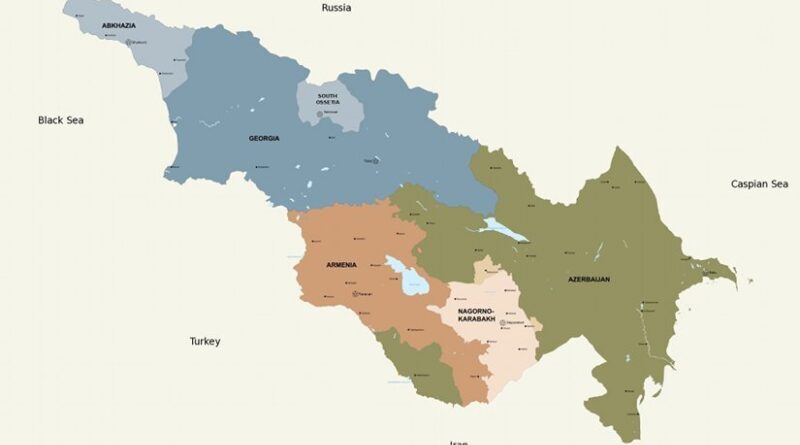Western Influence Wanes In South Caucasus – Analysis
Georgia might be close to a foreign policy rethink, bringing subtle but significant change.
Over the course of past year, Georgia’s relations with its Western partners have notably cooled. Under the ruling Georgian Dream (GD) party which came to power in 2012, ties with the West had strengthened. But recently, as the popularity of the party declined and the political landscape in Georgia altered, distrust has grown, accusations have flown, and questions regarding the sustainability of Georgia’s pro-Western path are loudly discussed.
A primary driver is an internal political crisis which followed the 2020 parliamentary elections. That worsened following a July 28 decision by GD to walk back a deal it reached with the political opposition to end a month-long internal political crisis. The process was supervised by EU diplomats along with the U.S. ambassador. A six-point plan was produced that envisaged long-sought electoral and judicial reforms, and power-sharing in parliament. It also involved stipulations on the possibility of new elections and the issue of political prisoners (though the government says there are none.)
The decision to withdraw from the deal might be also linked to the upcoming local government elections and troubles faced by the ruling party. IRI-produced polls showed that GD is backed by only 28% of the population, with the United National Movement, traditionally the biggest opposition party, coming second with 15%. Other polls showed only slightly higher support for the ruling party.
Georgian Dream also faces serious dissent within its own ranks. Former Prime Minister Giorgi Gakharia’s active political campaigning and growing popularity (9% according to the IRI polls) have taken significant support from Georgia Dream to his new party, called For Georgia. The proliferation of parties as well as the steady process of generational change is breaking the political status quo. Gradually, older parties are losing popularity, while newer groups manage to attract support in the 5-10% range. Diffusion of political power among multiple parties is thus a significant development which breaks with traditional Georgian politics of single party dominance of the entire political landscape.
Although pro-EU sentiment within the Georgian public remains fairly high, for the political elites it has become increasingly clear that membership prospects are bleaker than ever before. Reasons range from troubles in the liberal world order, to the rise of illiberalism and the divisions within the EU on expanding onto Russia’s doorstep.
America’s failures should not be magnified, but its prestige has been shaken by the Afghan withdrawal, meaning U.S. authority is being diluted. President Joe Biden’s focus on the Indo-Pacific region has provided an opportunity for Georgia’s government to consider a more balanced approach to the Black Sea neighborhood. This involves the establishment of more equidistant external ties, both to regional and global powers. Ukraine, another long-time EU-hopeful, did something similar when the country was essentially shunned from EU and NATO membership. The country turned to China, and signed a large investment deal to improve railway and ports infrastructure. Reaching out to Turkey is another option.
In Georgia’s case, its fixation with the West no longer provides the expected results. However, this does not mean Georgia will abandon its pro-Western stance. Ideally, constructing closer foreign ties with other actors would allow the country to partially compensate for its inability to win EU/NATO membership. A multi-vector foreign policy is already visible in Turkey, Iran, Russia and other neighboring states. Even Armenia, much constrained by asymmetric dependence on Russia, is actively looking at diversifying its foreign policy options by actively seeking a rapprochement with Turkey.
One possibility is that Georgia seeks an improvement of relations with Russia — badly marred by the 2008 war — as part of a more agile and balanced foreign policy. As ties between Georgia and the West deteriorate, Russia seems to want an understanding. A series of offers on normalizing bilateral relations was suggested by the Kremlin, aiming to exploit the rising disagreements between Georgia and its Western partners.
In the end, the shift from fixation on the West to a policy of criticism as part of a broader foreign policy reflects changes in the balance of power. The West is no longer seen in the wider Black Sea region as a decisive power. The rise of an illiberal alternative to the Western liberal democratic model allows countries to take another path. That of course ultimately harms the U.S. and its friends, reduces their credibility, and may reverse liberty’s advances, achieved over several decades, both in Georgia and Ukraine.
This article was published by CEPA

